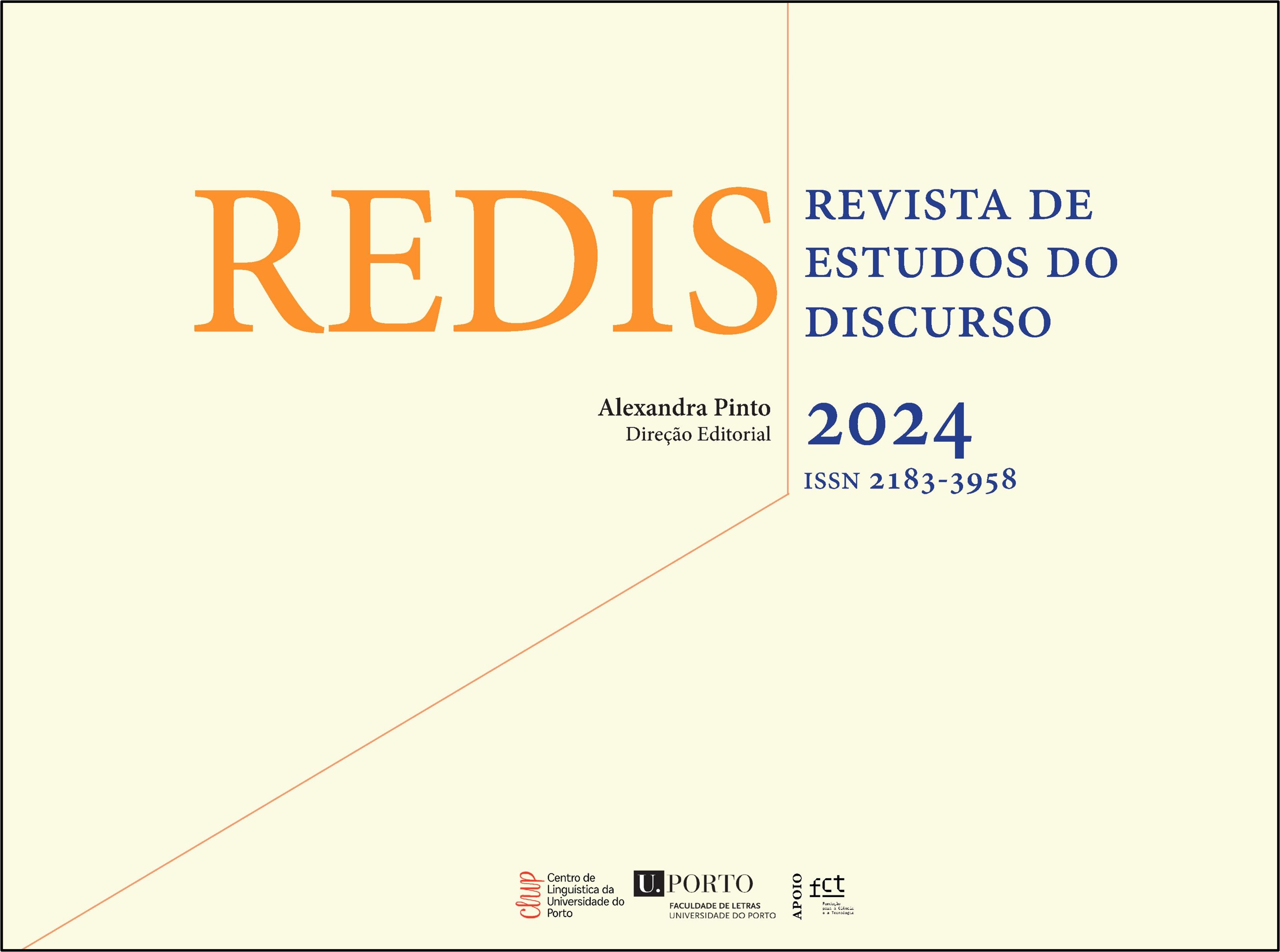Quem ficou em casa e quem não pôde ficar: narrativas sobre o trabalho de mulheres na pandemia
DOI:
https://doi.org/10.21747/21833958/red14a3Palavras-chave:
Análise de narrativa, Pandemia, Gênero, NeoliberalismoResumo
No presente artigo, informado pela Análise de Narrativa enquanto lente de análise discursiva, esboçamos uma pequena parte da paisagem discursiva da pandemia da Covid-19. Especificamente, analisamos histórias cotidianas contadas por mulheres trabalhadoras, nos perguntando sobre como elas puderam (ou não) responder ao chamado do isolamento social, e sobre os sentidos gerados por elas sobre as suas experiências nesse contexto. Os dados analisados foram gerados em entrevistas qualitativas abertas realizadas com três mulheres, atravessadas por diferentes intersecções e discursos. Os resultados mostram os diferentes sentidos e ordens de indexicalidade mobilizadas e a emergência de um sistema de coerência informado pelo discurso neoliberal.
Referências
Bakhtin, M. (2013). Problemas da poética de Dostoiévski. Tradução Paulo Bezerra. Rio de Janeiro: Forense Universitária.
Biar, L.; et al. (2021) A pesquisa brasileira em análise de narrativa em tempos de “pós-verdade”. Linguagem em (Dis)curso, 21 (2), p. 231-251.
Blommaert, J. (2007). Sociolinguistics and discourse analysis: Orders of indexicality and polycentricity. Journal of Multilingual Discourses, 2 (2), 115-130.
Blommaert, J. (2013). Chronicles of Complexity. Bristol: Multilingual Matters.
Blommaert, J. (2018). Are Chronotopes helpful? Disponível em: In: https://alternative-democracy-research.org/2018/06/22/are-chronotopes-helpful/. Acesso em 20 de fev de 2024.
Dardot, P.; Laval, C. (2016). A nova razão do mundo: ensaios sobre a sociedade neoliberal. Tradução de Mariana Echlar. São Paulo: Boitempo.
De Fina, A. (2021). Doing narrative analysis from a narratives-as-practices perspective. Narrative Inquiry, 31(1), 49-71.
Foucault, M. (1980). Power/knowledge. Selected interviews and other writings. New York: Pantheon.
Foucault, M. (2022). O nascimento da biopolítica: curso dado no Colège de France (1978-1979). Tradução de Eduardo Brandão. São Paulo: Martins Fontes.
Georgakopoulou, A. (2006). Thinking big with small stories in narrative and identity analysis. Narrative–State of the Art, 16 (1), 122–130.
Goffman, E. (1961). Manicômios, prisões e conventos. São Paulo: Perspectiva.
Gorter, D. (2006). Linguistic Landscape: a new approach to multilingualism. Clevedon: Multilingual Matters.
Irvine, J.; Gal, S. (2000). Language Ideology and Linguistic Differentiation. In P.V. Krosnrity (Org.), Regimes of Language. Santa Fe: School of American Research Press (p. 35–83).
Labov, W.; Waletzky, J. (1967). Narrative Analysis: oral versions of personal experience. In J. Helm (Org.), Essays on the verbal and visual arts. Seattle: University of Washington Press.
Labov, W. (1972). Language in the inner city: studies in the black English vernacular. Philadelphia: University of Philadelphia Press.
Laval, C. (2020). Foucault, Bourdieu e a questão neoliberal. Tradução de Márcia Pereira Cunha e Nilton Ken Ota. São Paulo: Elefante.
Linde, C. (1993). Life stories: the creation of coherence. Oxford: Oxford University Press.
Mishler, E. (2002). Narrativa e identidade: a mão dupla do tempo. In L.P. Moita Lopes; L.C. Bastos (Orgs.), Identidades: recortes multi e interdisciplinares. Campinas: Mercado de Letras.
Pinto, J.; Amaral, D. (2016). Corpos em trânsito e trajetórias textuais. Revista da Anpoll, 40, 151-164.
Downloads
Publicado
Como Citar
Edição
Secção
Licença
Direitos de Autor (c) 2024 Liana de Andrade Biar, Douglas Firmino dos Santos

Este trabalho encontra-se publicado com a Licença Internacional Creative Commons Atribuição 4.0.
Os autores cedem à REDIS: Revista de Estudos do Discurso, o direito exclusivo de publicação dos seus textos, sob qualquer meio, incluindo a sua reprodução e venda em suporte papel ou digital, bem como a sua disponibilização em regime de livre acesso em bases de dados.




